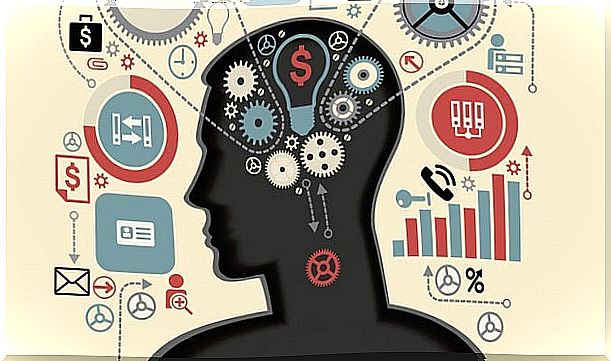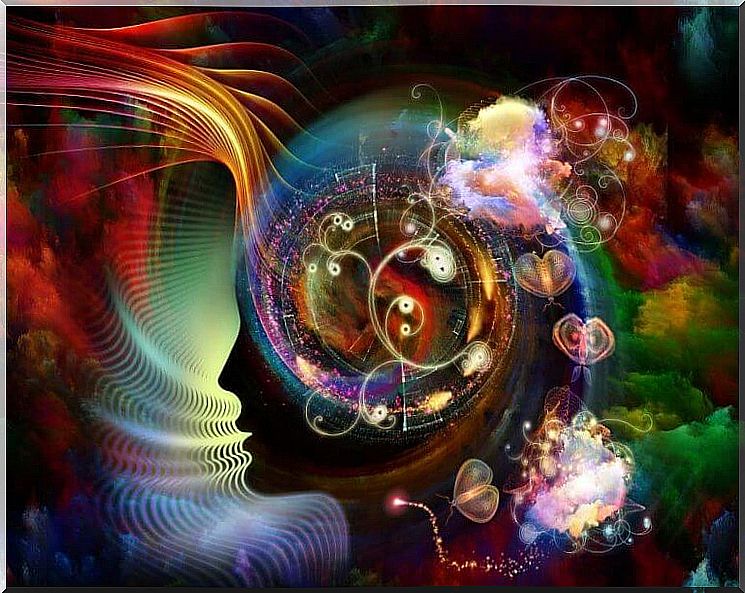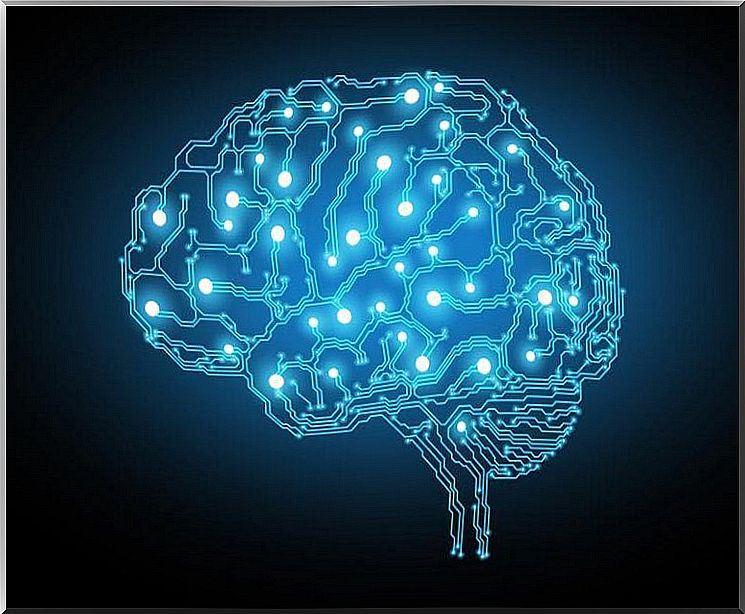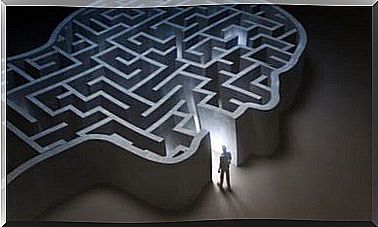Executive Functions: Mental Abilities Of The Human Brain

Executive functions are complex cognitive processes. They are those mental activities that we carry out to relate to our environment, to work, create, prioritize some activities over others, control time or even to motivate ourselves. It is like an automatic sequence of processes that we run on a daily basis without even realizing it.
At first glance, all of this may seem difficult to understand. We often hear that the brain works like a computer and uses almost the same mechanisms. Well, it must be said that it is much better. Executive functions are those incredibly sophisticated skills by which we regulate our behavior and achieve our purposes. Something that remarkably surpasses any type of technology.
Let’s take an example. We go to bed with a book. As we search for the chapter we stayed in the night before, we think about what we are going to do tomorrow. We set a purpose, we decide what is better to postpone and what to prioritize. We are excited about the objectives proposed for the next day. Then we focus on reading thinking that in an hour we will turn off the light to go to sleep.
In this simple scene, he demonstrates how our brain carries out countless processes in a small fraction of the time. Just a few seconds. We attend, prioritize, plan, supervise and focus on certain objectives.

Executive functions and the frontal lobe
The human being does not arrive in this world with all the executive functions ready to be used. It is curious to know, for example, that many of these processes acquire their full functionality around the age of 25. The reason? These cognitive abilities are located mostly in the prefrontal structures and are, in turn, the last to develop.
The first neurologist to speak of these functions as well as the executive system was Alexander Luria. It should also be said that these processes constitute a very recent fact from a phylogenetic point of view. Within our evolution as a species, they represent the most novel, that which is associated in turn with two very specific milestones: the acquisition of language and the increase of the frontal lobes. These events arose at the time a whole revolution.
Our social groups became more sophisticated, culture appeared, control of the environment and a whole succession of advances that come to constitute what we are now. However, one essential point should be noted. Although it is in our genetic code that these processes are refined as we mature (they usually appear between 8 and 12 months along with the development of language in the baby) the full acquisition of executive functions depends on several aspects.

From the age of 2, the type of interaction we receive, as well as its quality, is key. Stressful experiences or an insecure attachment hinder its proper development.
- One of the greatest connoisseurs of the executive brain is undoubtedly Elkhonon Goldberg. As he explains in his book ” How to invest in your brain”, executive functions reside in the frontal lobe. This is, so to speak, the area of our culture and of our social interactions.
- Thus, if a child does not enjoy a meaningful bond with his parents or the experience of education, it will be difficult for him to develop or use these fine-tuned cognitive processes effectively.
- On the other hand, it is important to note that executive functions can sometimes be impaired by disorders such as dyslexia, attention deficit disorder with or without hyperactivity, dyscalculia, schizophrenia or any brain damage.
Now, the good news is that these cognitive functions can be trained. As long as there are no serious neurological problems , all of us can fine-tune our executive functions much more.
What kind of executive functions do we have?
Animals also have their executive functions. Now, these are somewhat more rudimentary and elementary. They present their needs, a perceptual system that guides them in their behavior and a physical and motor system aimed at satisfying those needs, those instincts.
In the human being, things are a little more sophisticated. We do not move just to satisfy needs. Beyond instincts, what characterizes us are goals, obligations, social ties and our cultural and social scene. Our environment is so complex that we need a brain capable of adapting to this kaleidoscope of internal and external stimuli. This is where executive functions come into play.
They are as follows:
- Planning: generating a sequence of ideas to achieve a goal.
- Reasoning: the human being compares information, discards, chooses, analyzes, generates heuristics …
- Control and manage times. He knows how to monitor the time he must dedicate to each task, he knows when it is overdone or when we should spend more hours on something.
- Organize, structure the information in a way that makes sense and purpose.
- Inhibition. It is the ability to repress and control our instincts or drives so that our behavior is ideal.

- Focus and maintenance of care.
- Supervision and monitoring of our tasks, objectives or wishes.
- Work memory. Storing information and then accessing it at any given time is one of the most important executive functions.
- Flexibility. Ability to change our approach, be open to other ideas and learn from them.
To conclude, the executive brain is without a doubt the greatest gift that our evolution as a species has offered us. However, there is a nuance that we cannot ignore: executive functions lose functionality as we age. Thus, it never hurts to point out what we comment so many times in our space …
Let’s not let a day go by without learning something new. Let’s not let a moment pass without cultivating curiosity, critical thinking, or quality interaction with our friends or family. All these are nutrients for our brain, energy so that these cognitive processes resist the passage of time.









